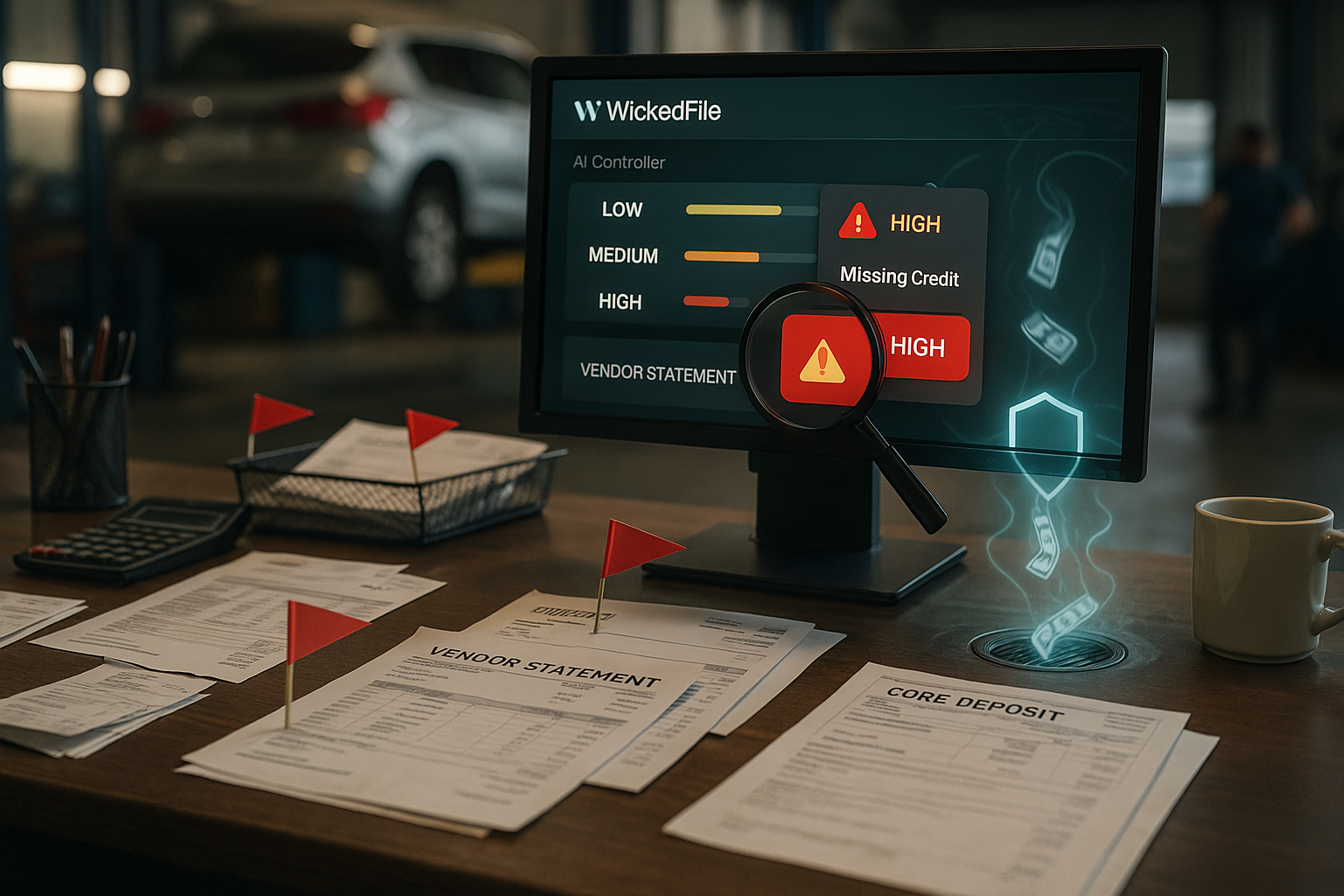
Maybe it’s a part that never got credited, a core that was “supposed to come back,” or a manager who swears a deposit went through when it didn’t. The problem is, most shop owners don’t see these leaks until it’s too late — when the numbers don’t add up at the end of the month.
Every shop loses money somewhere.
That’s where WickedFile steps in. It’s the AI-powered back-office tool that catches small mistakes before they turn into big losses — so you keep more of what you earn.
Where Shops Lose Money Without Realizing It
Profit leaks happen in almost every auto repair business, but they’re sneaky. Here are some of the most common culprits:
- Missing part credits: A vendor forgets to issue a credit, or the credit memo never makes it into your books.
- Unreturned cores: Those little “deposits” on cores can add up fast when they’re not returned or tracked.
- Incorrect deposits or mismatched card transactions: Payments that never clear or are misapplied create accounting gaps that go unnoticed.
- Parts purchased for personal use: A part or two “off the books” might not seem like much — until it becomes a pattern.
- Unverified vendor statements: If no one’s checking vendor statements line-by-line, you could be paying for invoices you never received or credits you never got.
According to the 2025 PMA Benchmark Report, even top-performing shops are still losing money due to inefficiency and weak cost controls. The difference between “top” and “not” performers often comes down to how tightly they manage their operations — and whether they have systems in place to catch these silent killers.
Why It’s Hard to Catch
Let’s face it: back-office work in auto repair isn’t glamorous. And most shop owners didn’t open their doors to spend their evenings reconciling invoices.
- There are too many invoices and repair orders to manually match.
- Different people handle purchasing, returns, and deposits — which makes accountability tough.
- Bookkeepers and managers are stretched thin, juggling dozens of priorities.
Even with the best intentions, things slip through the cracks. That’s not carelessness — it’s just reality.
How WickedFile Helps
WickedFile acts like an AI Controller for your business — constantly reviewing what’s coming in and going out so nothing gets missed.
Here’s what it does behind the scenes:
- Scans every invoice, credit, statement, and RO using AI-powered OCR and matching logic.
- Flags mismatches or missing credits automatically, so you know exactly where to look.
- Gives each item a Risk Rating — High, Medium, or Low — so you can focus on what matters most.
- Keeps all your documents organized and searchable in one secure place, no more digging through folders or emails.
It’s not about turning you into an accountant — it’s about giving you visibility. WickedFile surfaces what’s off so you can take action before it becomes a loss.
Real Talk: Profit Leaks Are Silent Thieves
“You don’t notice them day to day — but they add up. A few parts here, a few missed credits there. WickedFile doesn’t sleep; it watches your back office 24/7.”
Think of it as your digital watchdog — keeping an eye on every transaction, every vendor, and every return. Because when your systems are tight, your profits stay where they belong: in your pocket.
The Bottom Line
If you’re tired of wondering where your money’s going, WickedFile gives you the clarity you need — no spreadsheets, no chasing down vendors, no late-night reconciliations. Just straight visibility.
Stop letting hidden leaks eat away at your hard-earned profits.
With WickedFile, you don’t just see your numbers — you understand them. And that’s how you take control of your business again.
